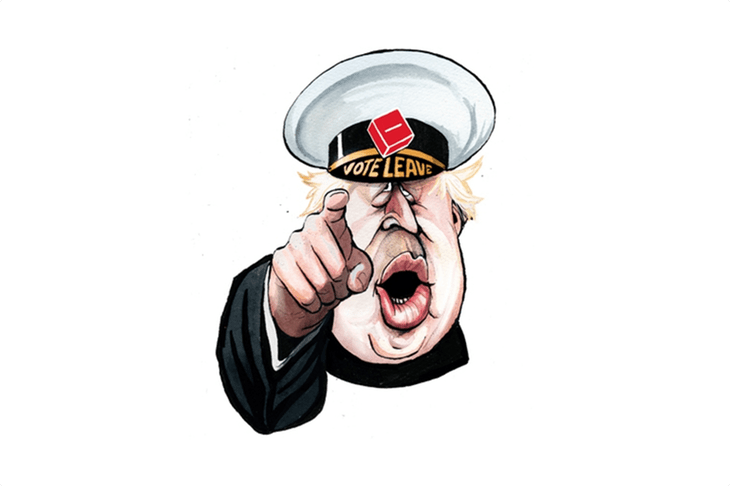Lorries will be backed up across Kent. The shops will run short of essential goods. Travel plans will be disrupted, and factories will start to close as British goods are shut out of their main export markets. As the UK comes to the end of its transitional deal with the EU, and as talks on a trade agreement appear to have reached an impasse, there will be plenty of high-stakes brinkmanship, and pressure on the government to give some ground on fishing and regulation to avoid the potential chaos of no deal. And yet in truth, if Boris Johnson caves into the EU’s demands at the last moment, the voters will punish him — and they will be right to do so.
Right now, it is anyone’s guess whether a trade deal can be done at the last moment between the EU and the UK. Negotiations have broken down, and France is threatening a veto. If a deal is not reached by the middle of next week, it may well be impossible to ratify it in time. The UK will switch to trading with the rest of Europe on World Trade Organisation terms. There may well be an economic price to pay for that, although it is unlikely the disruption will be anything close to the catastrophe that some pundits have been predicting for the last four years. One point should be clear, however. There won’t be a political price; indeed the real damage would be done by giving too much ground to the EU.
A poll in the Sun today found that a clear majority of voters in the ‘red wall’ seats, that is the 34 constituencies in the North and the Midlands that Boris Johnson captured for the Tories in the 2019 general election, don’t want to see a sell-out. They don’t want the Prime Minister to give up on regaining control of British fishing waters (slightly oddly admittedly, since fishing only accounts for 0.08 per cent of the economy, a number so tiny you have to be careful to get the decimal point in the right place). And 58 per cent of voters said they would be less likely to vote for the Tories again if the UK gave up judicial control to Brussels, and 55 per cent if the UK didn’t maintain the right to strike its own trade deals around the world.
Those are striking numbers. They might not be repeated around the country: the Remainer heartlands of north London, and the university towns, would see it differently. But it matters in the places that counted for winning the Conservative party a handsome majority in 2019, and which are likely to matter just as much for repeating that trick in 2023 or 2024.
At this stage in the fraught Brexit process, it is hard to see any huge economic advantage in striking a deal. The terms on offer from the EU are so meagre there is not much point in signing up to them: a few firms would benefit but not many. And it is hard to see any political advantage either. It would be better simply to walk away, get on with making WTO rules work, and assure those voters that British interests are being protected.






Comments